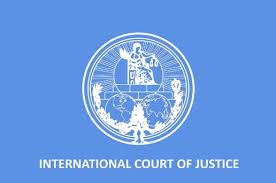Nature and Scope of Private International Law
📚 Private International Law: Nature and Scope
✅ What is Private International Law?
Private International Law (also known as Conflict of Laws) is the branch of law that governs disputes involving a foreign element between private individuals or entities, such as:
A contract between parties in different countries
A marriage between nationals of different countries
A tort committed in one country by a person from another
It determines which legal system and which jurisdiction will apply in cross-border disputes involving private parties.
🌍 Key Characteristics / Nature
Cross-Border Focus:
It applies only when there is a foreign element, such as nationality, domicile, or location of the property or action.
Private Parties:
Involves individuals or corporations, not states or governments (which is the realm of Public International Law).
Conflict Resolution:
It resolves conflicts between different legal systems by providing rules for:
Jurisdiction
Choice of Law
Recognition and Enforcement of foreign judgments
Procedural and Substantive Blend:
Though mostly procedural (deciding which law applies), it often impacts substantive rights of the parties involved.
Territorial and Personal Elements:
Balances territorial sovereignty with the personal laws of individuals (such as religion, nationality, or domicile).
🧭 Scope of Private International Law
Private International Law deals with three core questions:
1. Jurisdiction
Which country’s courts can hear the case?
Example: If an Indian company is sued by a UK resident for breach of contract, the first issue is which court has jurisdiction — India or UK?
2. Choice of Law
Which country’s laws should apply to the dispute?
Even if a case is heard in an Indian court, should it apply Indian law or foreign law (e.g., UK contract law)?
3. Recognition and Enforcement of Foreign Judgments
Will a judgment given in one country be recognized and enforced in another?
For example, if a U.S. court awards damages, can that judgment be enforced in India?
⚖️ Case Law Illustrations
🔹 Guruswamy v. K. Nagarathnam
Facts:
A marriage was solemnized in one country, and a divorce petition was filed in another.
Issue:
Whether the foreign divorce decree should be recognized.
Holding:
The court examined if the foreign judgment complied with the basic principles of natural justice and whether the foreign court had proper jurisdiction.
Significance:
Illustrates how private international law deals with family law across jurisdictions, and the recognition of foreign judgments.
🔹 Dhulabhai v. State of Madhya Pradesh
Facts:
Though primarily a constitutional case, it involved recognition of rights arising in one jurisdiction and their enforceability in another.
Significance:
Laid down principles regarding jurisdiction and applicability of laws in multi-jurisdictional matters.
🔹 Tata Sons Ltd. v. Manu Kishori
Facts:
Tata Sons brought a suit against a domain name registrant based in a foreign country for using its trademark.
Issue:
Could an Indian court assume jurisdiction?
Holding:
Yes, because the effect of the violation occurred in India, where Tata operated.
Significance:
Shows how jurisdiction can be established based on the place of harm, even if the defendant is abroad.
🧠 Importance of Private International Law in Modern Times
| Area | Relevance of Private International Law |
|---|---|
| International Commerce | Contracts between companies in different countries |
| Marriage & Divorce | Cross-border family law issues |
| Child Custody & Adoption | Jurisdictional issues in international custody |
| Inheritance | Wills and property across borders |
| Torts (Civil Wrongs) | Accidents involving foreign nationals |
| Digital and IP Disputes | Domain names, copyright infringement across borders |
🌐 Challenges in Private International Law
Diversity of Legal Systems:
Different countries may have conflicting legal principles.
Recognition of Foreign Judgments:
Some countries may refuse to recognize a judgment from another country if it goes against public policy.
Evolving Technologies:
Cross-border issues related to cyberspace, e-commerce, and data protection are creating new legal complexities.
Lack of Uniformity:
No single global court or codified system governs private international law; it depends on domestic laws and international conventions.
📌 Summary Table
| Aspect | Explanation |
|---|---|
| Nature | Deals with cross-border disputes between private parties |
| Scope | Jurisdiction, choice of law, recognition of judgments |
| Not Public Int’l Law | Involves individuals, not states |
| Key Case Themes | Marriage, contract, torts, property, inheritance |
| Modern Relevance | E-commerce, digital rights, international business |
✅ In Simple Words:
Private international law decides which country’s court and law should apply when people from different countries get into a legal dispute. It helps solve confusion when laws and borders overlap in matters like marriage, contracts, or digital rights.












comments